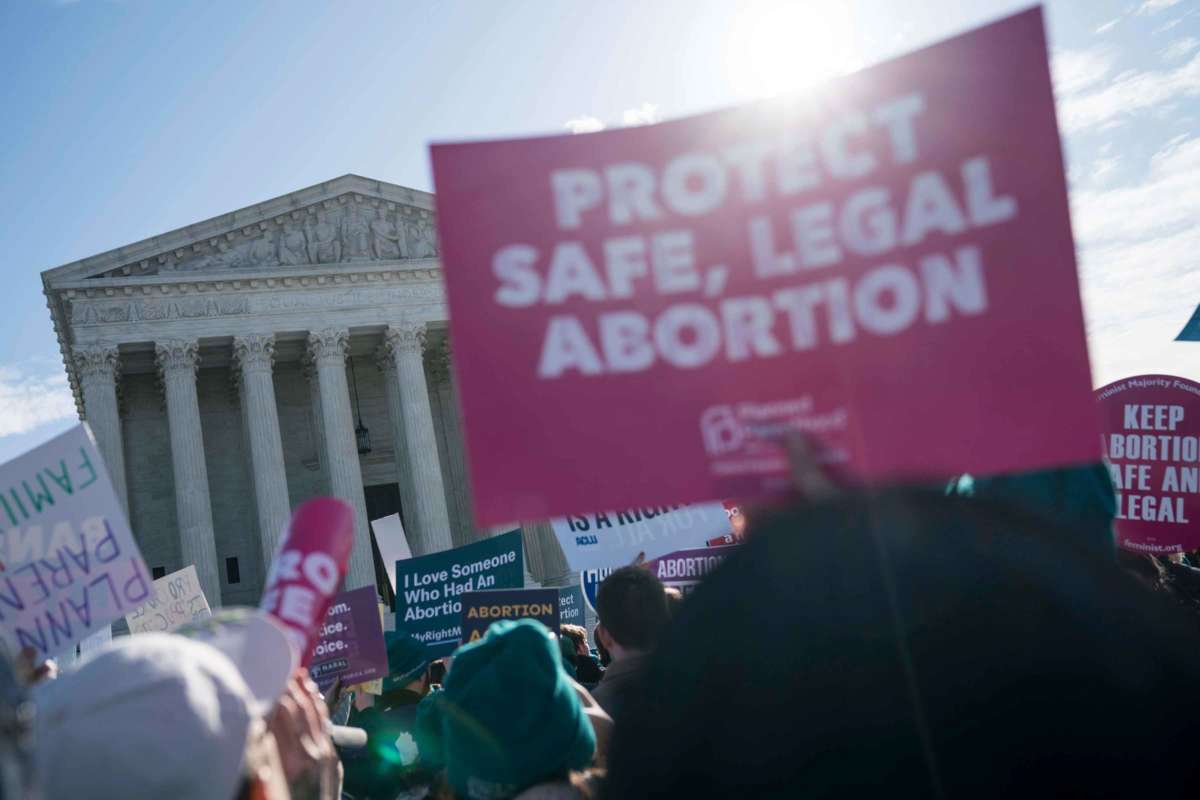The United States Supreme Court issued a ruling on Monday invalidating a Louisiana law that sought to put tough restrictions on abortion clinics, threatening access to the procedure for thousands of individuals in the state.
The 5-4 decision from the Court fell along mostly partisan lines, with a single conservative member of the bench, Chief Justice John Roberts, joining the four liberal justices in overturning the measure that was passed in the state in 2014.
The law would have required doctors performing abortions to have admitting privileges at a hospital within 30 miles of their clinics. It mirrored a similar measure that was passed in Texas years prior, which was itself invalidated by the Supreme Court in 2016.
Louisiana currently only has four abortion clinics in the state. Had the law remained in place, doctors arguing against it said, it would have allowed just one abortion clinic to remain, to serve the more than 10,000 patients in the state who seek an abortion annually.
The ruling from the majority largely focused on the fact that the Supreme Court had already ruled on the issue four years ago.
“This case is similar to, nearly identical with, Whole Woman’s Health,” the Court’s decision surrounding the Texas law, Justice Stephen Breyer wrote in the liberal bloc’s opinion of the case. “And the law must consequently reach a similar conclusion.”
Similarly, Roberts, who penned his own opinion, relied on precedent in his decision to join with the liberals, though he recognized in the 2016 case he had been on the other side of the issue.
“I joined the dissent in Whole Woman’s Health and continue to believe that the case was wrongly decided. The question today, however, is not whether Whole Woman’s Health was right or wrong, but whether to adhere to it in deciding the present case,” Roberts wrote.
“The legal doctrine of stare decisis requires us, absent special circumstances, to treat like cases alike,” Roberts went on to say. “The Louisiana law imposes a burden on access to abortion just as severe as that imposed by the Texas law, for the same reasons. Therefore, Louisiana’s law cannot stand under our precedents.”
The ruling is the first abortion rights decision to be made that includes Justices Brett Kavanaugh and Neil Gorsuch, two members of the Supreme Court appointed by President Donald Trump. Both sided with the conservative bloc of dissenting justices.
Perhaps recognizing the slim margin by which this law was ruled unconstitutional, several abortion rights’ groups voiced concern about what future Supreme Court rulings might entail on the issue. Nancy Northup, president and CEO of The Center for Reproductive Rights, the law firm that challenged the law, told CBS News that there was more work to be done.
“We’re relieved that the Louisiana law has been blocked today but we’re concerned about tomorrow,” Northup said. “[T]he Court’s decision could embolden states to pass even more restrictive laws when clarity is needed if abortion rights are to be protected.”
Planned Parenthood President and CEO Alexis McGill Johnson voiced similar concerns on social media.
“While today was a win, reproductive freedom for too many is *still* on the line, and some politicians will continue to do everything they can to take control of our bodies, lives, and futures. Enough is enough,” McGill Johnson tweeted.
Indeed, freelance writer Katie Klabusich, writing for Truthout in January, expounded on how a “win” for the pro-choice movement on this case could ultimately be a shortlived one.
“Whatever happens in the month of June when the decision on the June Medical case is announced, experts are planning tempered reactions — not just because of the ideological shift on the court since Whole Woman’s Health, but also because the opportunity to hear the next abortion case is never far off,” Klabusich said of the case. “And the Trump-era appointments have provided all the ingredients that … would be needed to nullify Roe.”
Join us in defending the truth before it’s too late
The future of independent journalism is uncertain, and the consequences of losing it are too grave to ignore. To ensure Truthout remains safe, strong, and free, we need to raise $43,000 in the next 6 days. Every dollar raised goes directly toward the costs of producing news you can trust.
Please give what you can — because by supporting us with a tax-deductible donation, you’re not just preserving a source of news, you’re helping to safeguard what’s left of our democracy.
